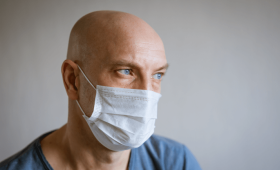Introduction to Phytotherapy: The Power of Nature Rediscovered
Phytotherapy is the science of using plants for the prevention and treatment of diseases. This method, which has been practiced for thousands of years by various cultures worldwide, has gained new importance today as a complementary approach alongside modern medicine. Phytotherapy aims to scientifically investigate the positive effects of biologically active compounds (alkaloids, glycosides, flavonoids, phenolic acids, essential oils, etc.) found in plants on the human body. Unlike traditional plant use, modern phytotherapy is a discipline based on scientific evidence with standardized herbal products and dosages. The role of phytotherapy in treating a complex disease like cancer is generally seen as enhancing the patient’s quality of life, alleviating side effects, and supporting the main treatment.
The Place of Phytotherapy in Cancer Treatment: A Complementary Approach
In cancer treatment, phytotherapy never replaces primary treatment methods (chemotherapy, radiotherapy, surgery). On the contrary, it is used as a complementary element to these treatments. Its purpose is to strengthen the immune system of the patient fighting cancer, reduce side effects like nausea, vomiting, and fatigue caused by chemotherapy and radiotherapy, and improve overall health. When applied correctly, herbal products can make the treatment process more manageable and increase the patient’s psychological resilience. However, since herbal products also have strong biological effects, it is vital to consult an oncology specialist and a physician experienced in phytotherapy before starting the use of any phytotherapeutic product.
The Mechanisms of Plants in Fighting Cancer
Herbal compounds act on cancer cells through multiple mechanisms. These mechanisms explain the ability of a single plant’s compounds to inhibit cancer development at different stages. The main mechanisms include: inhibition of cellular growth (antiproliferation), triggering programmed cell death (apoptosis) in cancer cells, stopping the formation of new blood vessels (angiogenesis) that supply tumors, and stimulating the immune system. This multi-faceted effect demonstrates the potential of phytotherapy in the fight against cancer.
Richness of Antioxidants and the Fight Against Free Radicals
Plants are extremely rich in antioxidants. Antioxidant compounds such as flavonoids, phenolic acids, and carotenoids neutralize free radicals that form in the body. Free radicals can cause DNA damage and trigger the development of cancer. Herbal antioxidants can prevent this damage, protecting cells and reducing cancer risk. Catechins found in green tea, curcumin found in turmeric, and resveratrol found in grapes stand out with their powerful antioxidant properties.
Herbal Compounds Supporting the Immune System
A strong immune system is of vital importance for the recognition and destruction of cancer cells. Some plants directly stimulate the immune system to support this process. For example, plants like Echinacea and Astragalus can increase the activity of immune cells and promote cytokine production. In this way, the body’s natural capacity to fight cancer can be strengthened. Such herbal supplements can help keep immune system values, which often drop during chemotherapy, at normal levels.
Plants That Promote Apoptosis
Apoptosis means a cell dying in a programmed way and is part of the body’s normal functioning. Cancer cells have the ability to escape this natural death mechanism. Many herbal compounds can help restart apoptosis in cancer cells, leading to tumor shrinkage or the cessation of its growth. Oleuropein found in olive leaf extract and sulforaphane found in cruciferous vegetables like broccoli are among the compounds effective in this mechanism.
Herbal Treatments That Inhibit Angiogenesis
The growth and metastasis of tumors depend on their ability to form new blood vessels (angiogenesis). These new vessels supply the tumor with nutrients and oxygen. Some herbal compounds can help inhibit this vessel formation, causing the tumor to “starve” and stopping its spread. Compounds found in plants like green tea, turmeric, and blueberries are being researched for their potential to suppress angiogenesis.
Phytotherapeutics Regulating Hormonal Balance
In some hormone-sensitive types of cancer (e.g., breast or prostate cancer), maintaining hormonal balance is an important part of the treatment. For example, phytoestrogens found in flaxseed and soy can bind to hormone receptors in the body, reducing the effect of harmful estrogens. This is considered a supportive mechanism in the treatment of hormone-dependent cancers.
The Most Researched Candidates in Herbal Medicine: Curcumin and Resveratrol
Curcumin, the main active component of the turmeric plant, has strong anti-inflammatory, antioxidant, and anticancer properties. Numerous in vitro and preclinical studies have shown that curcumin stops the growth of cancer cells and triggers apoptosis. Resveratrol is a polyphenol found in grapes, red wine, and some berries. This compound is also known for its antioxidant and anticancer effects and is being intensively researched for its ability to stop the cancer cell cycle and promote apoptosis.
Commonly Used Plants in Cancer Treatment: Ginger and Garlic
Ginger is widely used to alleviate nausea and vomiting caused by chemotherapy. Its gingerols and shogaols soothe the digestive system. Garlic, on the other hand, can have anticancer properties thanks to its sulfur compounds like allicin. These compounds can inhibit the proliferation of cancer cells and support the immune system. These plants are not only indispensable in our kitchens but also important natural resources with medicinal potential.
Traditional Turkish Phytotherapy and Cancer Treatment
Türkiye has great potential in the field of phytotherapy with its rich plant diversity and deep-rooted traditional medicine culture. The medicinal plants that have been used for centuries in different regions of Anatolia may contain compounds that show promise in cancer treatment through modern research. Studies on plants growing in Anatolia indicate that the compounds contained in these plants may be effective even on chemotherapy-resistant cancer cells. In this context, Türkiye’s unique plant flora offers a unique laboratory for global phytotherapy research.

Anatolia’s Endemic Plants and Their Potentials
Türkiye is home to approximately 12,000 plant species, and more than 3,500 of them are endemic (unique to this geography). The high mountains, forests, and steppes of Anatolia may harbor thousands of biological compounds yet to be discovered. For example, laboratory studies on some herbs used in folk medicine for cancer treatment have shown that the compounds they contain have a lethal effect on cancer cells. The systematic study of these endemic plants could lead to the discovery of new and powerful molecules against cancer. Türkiye could lead the world in research in this field.
Clinical Studies: Promising Findings and Challenges
Clinical studies in the field of phytotherapy are promising, especially in improving the quality of life and reducing side effects. However, there are not yet enough large-scale and standardized studies as there are for a standard drug’s clinical trials. This makes it difficult to definitively prove the efficacy and safety of herbal products. More and better-designed clinical studies in the future will more clearly define the place of phytotherapy in cancer treatment.
The Role of Phytotherapy in Reducing Side Effects
Chemotherapy and radiotherapy can harm healthy cells while destroying cancer cells. This leads to severe side effects such as nausea, vomiting, fatigue, mouth sores, and loss of appetite. Some herbal products can help manage these side effects. For example, ginger is used against nausea, while plants like chamomile and lemon balm can help with anxiety and sleep problems.
Herbal Solutions Against Chemotherapy and Radiotherapy Side Effects
Nausea and vomiting related to chemotherapy can be effectively alleviated with ginger root extract. For mouth sores, mucus-containing plants like marshmallow flower or licorice root can provide relief by coating the inside of the mouth. In cases of fatigue and loss of appetite, energy-boosting and appetite-enhancing plants like ginseng can be used under a doctor’s supervision. Such herbal solutions can help the patient’s compliance with treatment, making the process more comfortable.
Psychological and Emotional Support from Phytotherapy
Fighting cancer is not just a physical battle but also an intense emotional and psychological process. Herbal treatments can also be supportive in this area. Plants like lavender, chamomile, and passionflower can help lower patients’ stress levels and improve sleep quality with their calming and anxiety-relieving effects. This psychological support enables the patient to maintain their belief and motivation in the treatment.
Phytotherapy Practices and Legal Regulations in Türkiye
In Türkiye, phytotherapy is accepted as a complementary medical method approved by the Ministry of Health. This means that phytotherapy applications can be carried out under specific standards and by trained physicians. This legal framework facilitates patients’ access to safe and scientifically based practices. Phytotherapy education in Türkiye is provided at medical faculties or ministry-approved training institutions. This ensures that patients are entrusted to reliable hands.
The Future of Phytotherapy: Nanotechnology and Personalized Treatments
Phytotherapy will be taken even further in the future with the development of technology. Nanotechnology aims to place herbal compounds into nano-sized capsules, delivering them directly and in a targeted manner to cancer cells. This will maximize efficacy while minimizing side effects. Additionally, personalized phytotherapy approaches may become widespread in the future. It may be possible to determine the most suitable herbal treatment by analyzing the patient’s genetic makeup and the molecular profile of the cancer.
The Importance of Choosing the Right Plant in Cancer Treatment
Plant selection is critical for the success of phytotherapy. Different species of the same plant or different growing conditions of the same species can change the quantity and quality of their active components. Therefore, it is necessary to ensure that the herbal products used are standardized and obtained from reliable sources. Avoiding products on the market that lack a scientific basis is essential for both the effectiveness of the treatment and patient safety.
Quality Control and Standardization: Access to Safe Products
The reliability of herbal products is ensured through quality control and standardization processes. Information such as which part of the plant the product was obtained from, when and by what method, and the amount of active compound it contains should be clearly stated on the product labels. Regulations in this area in Türkiye also aim to increase patients’ access to reliable and quality products.
Interactions of Herbal Supplements: Things to Consider
Herbal products can have dangerous interactions with certain medications. For example, a patient taking blood thinners who also takes ginseng or garlic supplements may increase the risk of bleeding. Similarly, some plants may reduce the effectiveness of chemotherapy or increase its toxicity. Therefore, it is imperative for the patient to provide their physician with detailed information about all the medications and supplements they are using before starting any phytotherapeutic product.
The Importance of Patient-Physician Collaboration
Phytotherapy is a multidisciplinary approach. The best results are obtained through a strong collaboration between the oncologist, the phytotherapy specialist, and the patient. The patient should share every herbal product they use and every change they feel with their doctor. In this way, doctors can better manage the treatment and prevent possible interactions or side effects.
Ways to Protect Against Misinformation
There is a lot of false and misleading information about phytotherapy on the internet and social media. Claims like “miraculous” cures or “plants that defeat cancer on their own” can cause patients to turn away from the correct treatment and risk their health. Approaching information critically and only getting information from reliable and scientific sources (universities, medical faculties, Ministry of Health-approved centers) is of vital importance.
Important Institutions and Researchers in the Field of Phytotherapy in Türkiye
Türkiye is home to many scientists and institutions that have carried out important studies in this field. Especially well-established universities like Anadolu University, Ege University, and Hacettepe University have strong laboratories that conduct research in the field of phytotherapy and pharmacognosy (herbal medicine science). These institutions are investigating the potential of herbal compounds in cancer treatment by scientifically examining Türkiye’s rich plant flora. Cancer patients and their relatives can benefit from the consultancy services of these centers or follow current scientific developments in this field.
Phytotherapy, a Synergistic Force in the Fight Against Cancer
While phytotherapy is not a magic wand in cancer treatment, when used correctly, it is a powerful complement that improves the quality of life of patients and supports the main treatment. When proper plants, standardized products, and physician supervision are applied, herbal compounds can create a synergistic force in the fight against cancer. Especially with Türkiye’s rich plant diversity and academic studies in this field, phytotherapy may gain a much more significant place in cancer treatment in the future. It is of great importance for everyone fighting cancer to fully benefit from the opportunities offered by modern medicine while also evaluating this healing touch of nature with a scientific approach.



